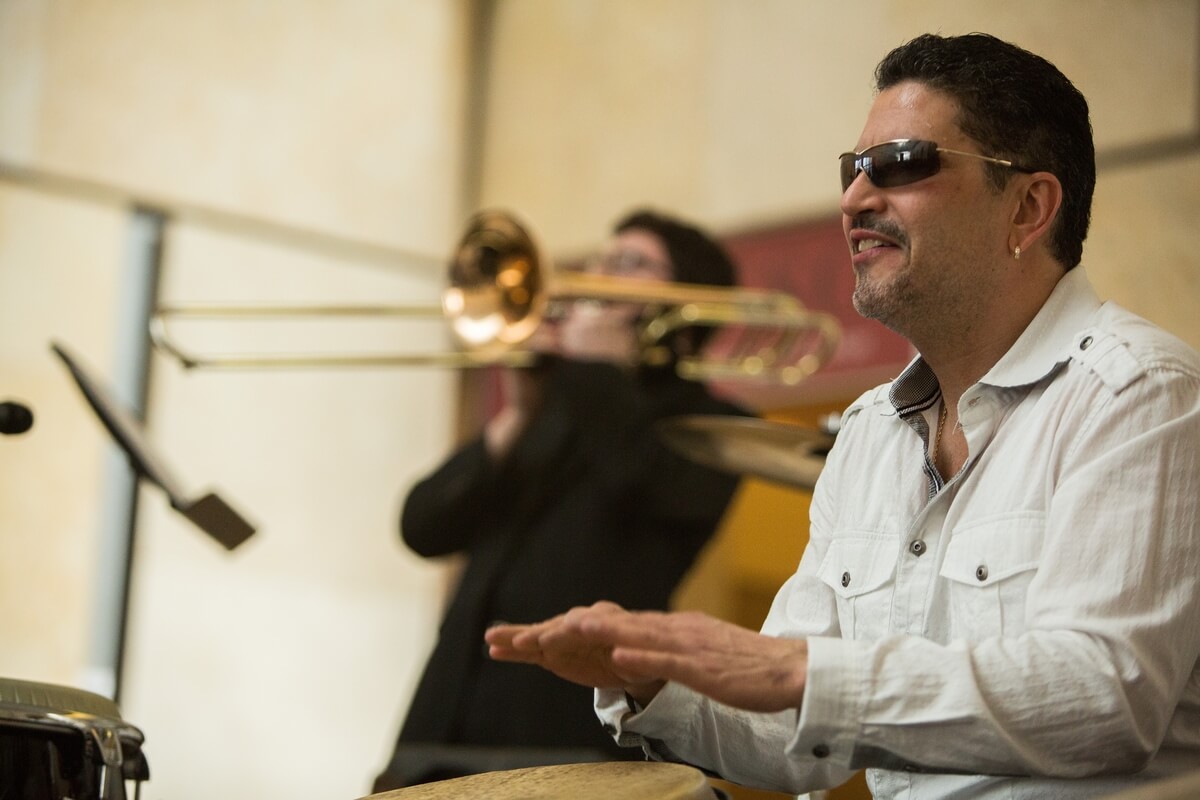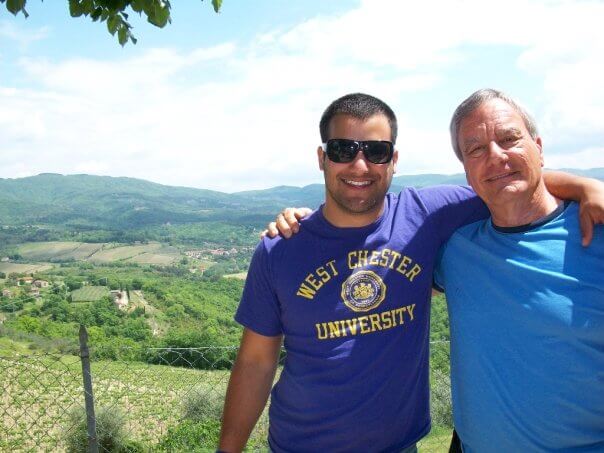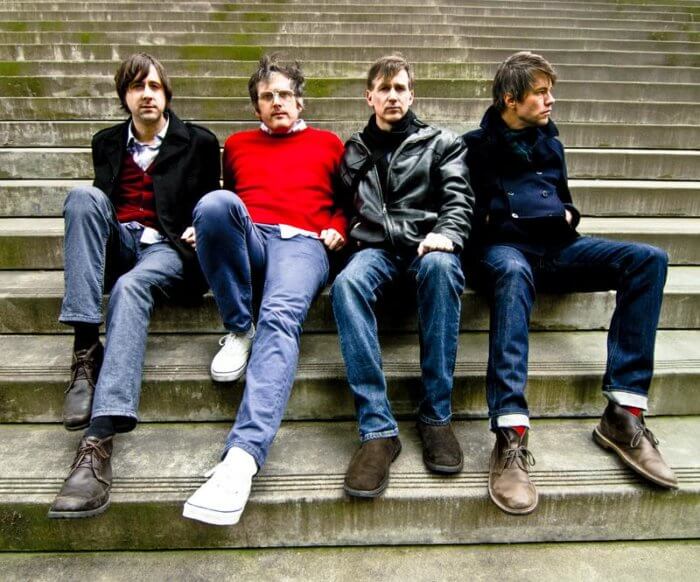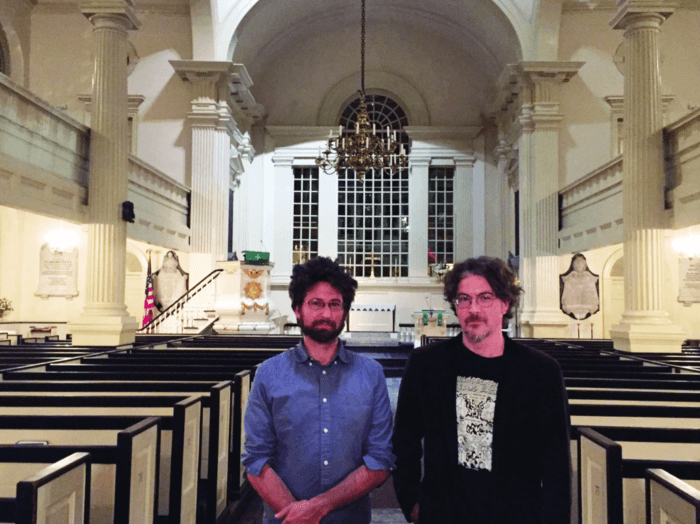Philadelphia percussionist Pablo Batista is an important part of regional R&B history, considering his role on recordings and live shows with fellow locals such as Patti LaBelle, Jean Carne and the late Grover Washington Jr. With his new, multimedia, Pew Center-funded “El Viaje” and its two dozen musicians, dancers and spoken-word artists, Batista is acting and writing as somewhat of a historian himself. As part of several Pew Center for Arts & Heritage grants and fellowships issued throughout the last five years, Batista traveled to Santiago de Cuba, where he studied with Ballet Folklorico Cutumba, Cuba’s highly regarded folkloric dance company. He ate, slept and breathed the history of Afro-Cuban drumming and its worldly social relevance, and connected the literal and figurative journey of enslaved African culture with his own family’s journey from Puerto Rico to the industrial town of Bethlehem, Pennsylvania, in the 1960s. When “El Viaje” debuts June 25 at Temple Performing Arts Center, Batista’s winding musical will additionally reflect his studio and touring life as a master of salsa, jazz, soul and gospel. When asked about the currency of immigrant culture in America being under a microscope, the percussionist says that his Puerto Rican-born father went through the same headaches and heartaches when he moved to Bethlehem. “My dad, who did migrate, would say that today it’s just a different group getting scrutinized,” he says, mentioning how his parents came to the Pennsylvania area for work and a better life. “Bethlehem Steel and the local textile industry gave my parents opportunity. My parents emigrated from the island, but my great grandma was from Africa, which made me realize there were two waves of immigration in my family: one from Africa to Puerto Rico, the other from Puerto Rico to Pennsylvania.” As a one-time Temple University student who started playing Afro-Cuban and funk rhythms behind the greats of Philly’s soul and jazz scene in the ’80s, the idea of portraying the historical perspective of his heritage had forever haunted him. The journey to pen “El Viaje” has been a long one, a labor of love. “Beginning with Yoruba sacred drumming and dance in its most authentic form, I worked my way from there and blended the many forms I’ve experienced — jazz and blues, soul, bomba and rumba — to tell a story.” Batista adds that his musical story’s choreographer, Gilset Mora, also grew up in the tradition in Cuba as a young and versatile dancer and instructor. The travels Batista made to Cuba are where he got his formal education sociologically and musically. Yet it was in the combination of all of Batista’s influences “from three decades of great music” that makes “El Viaje” sing. When audiences leave “El Viaje,” the author wants audiences to know that his story is about “defying the odds, about resilience.” Ask Batista if being the composer of a great musical means he’ll sit in the wings when it comes to performance time, and he laughs. “Are you kidding? I’ll be having fun playing from top to bottom — the whole journey!” “El Viaje” will have two performances at the Temple Performing Arts Center, one on June 25 at 8:00 p.m. and one on June 26 at 3:00 p.m. Click here for tickets.
Pablo Batista debuts ‘El Viaje’

Dave Tavani
































